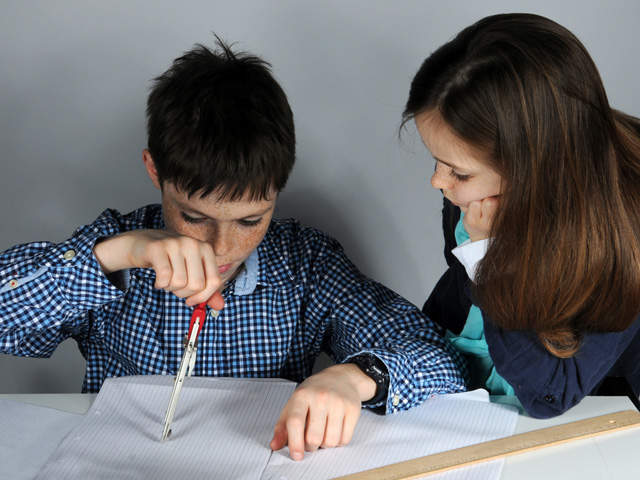Be due to, be bound to... (B2)
Other ways to express future (426)
Další způsoby vyjádření budoucnosti
Další způsoby vyjádření budoucnosti – procvičování:
Na Landigo máme k budoucímu času ještě další lekce:
- Budoucí čas s WILL (00)
- Vyjádření budoucnosti přítomným časem (A1)
- Be going to (A1)
- Be to (B1)
- Be about to (B1)
I'm about to call a cab. My train is due to leave at 3 pm.
| Mluvíme o budoucnosti: |
|
I'm about to call a cab.
|
|
The train is due to leave at 3 pm.
|
|
The train is bound to be delayed.
|


Budoucnost můžeme vyjádřit pomocí vazby se slovesem BE:
- Bezprostřední budoucnost:
I'm about to leave.I'm on the verge of leaving.I'm on the point of leaving.I'm on the brink of leaving.
- Časový harmonogram:
I'm due to arrive at 7:30.
- Velmi pravděpodobně se stane:
I'm sure to arrive soon.I'm bound to arrive soon.
- Připraveno k něčemu:
I'm set to leave now.




Budoucí plán nebo úmysl vyjadřujeme také pomocí sloves WANT, INTEND, PLAN, AGREE...:
|
I want to leave soon.
|
|
I intend to leave soon.
|




Be about to do; be on the verge/point/brink of doing = bezprostřední budoucnost
BE ABOUT TO + infinitiv:
|
We're about to head to the festival.
|
Zrovna budeme vyrážet na festival. |
|
Get your parachutes ready. You're about to jump out of the plane.
|
Připravte si padáky. Za chvilku budete skákat z letadla. |
|
Hurry up! The coach is about to leave!
|
Pospěšte si! Autobus bude za chvíli odjíždět! |
BE ABOUT TO lze často nahradit vazbou BE GOING TO. Vazby se liší především v tom, že BE ABOUT TO zdůrazňuje více bezprostřednost děje.
Please fasten your seatbelts. We're about to start landing.
| Blízká budoucnost: |
|
We're about to start landing.
|
|
We're going to start landing shortly.
|


BE ON THE VERGE OF + ING nebo podstatné jméno:
|
Their economy is on the verge of collapsing.
|
Jejich ekonomika je na pokraji zhroucení. |
|
Their economy is on the verge of a collapse.
|
|
|
I'm on the verge of signing the contract.
|
Jsem těsně před podpisem smlouvy. |
|
He looks like he's on the verge of bursting into tears.
|
Vypadá, jako by se měl každou chvíli rozplakat. |
Nikoliv: on the verge to collapse, on the verge to sign
Erin's liver is on the verge of shutting down completely. She has no other choice but do the surgery.
| Velmi blízká budoucnost: |
|
It's on the verge of shutting down.
|
|
It's about to shut down.
|


BE ON THE POINT OF + ING/podstatné jméno:
|
The fish is on the point of dying out.
|
Ryba je na pokraji vyhynutí. |
|
The fish is on the point of extinction.
|
|
|
The police are on the point of solving the case.
|
Policie je těsně před vyřešením případu. |
Ben's getting desperate. He's on the point of taking the computer to the experts to sort it out.
|
He's on the point to take of taking it to the experts.
|


BE ON THE BRINK OF + ING/podstatné jméno:
|
He's on the brink of making a discovery.
|
Je velmi blízko objevu. |
|
He's on the point of a discovery.
|
|
|
They're on the brink of a disaster.
|
Jsou na pokraji katastrofy. |
BE ON THE BRINK OF se často použije pro něco důležitého (a discovery) nebo špatného (a disaster).
I'm finally on the brink of a scientific breakthrough. I might change the course of history.
|
I'm on the brink of a breakthrough.
|
|
We're on the brink of bankruptcy.
|
|
They're on the brink of a crisis.
|


Be due to do = časový harmonogram/rozvrh
|
Do you happen to know what time the visitors are due to arrive?
|
Nevíte náhodou, v kolik hodin mají návštěvníci přijet? |
|
The train is due to be in Berlin at 11:15, but it'll be most likely delayed.
|
Vlak má do Berlína přijet v 11:15, nejspíš ale bude mít zpoždění. |
Are you due to hand in this homework on Monday?
| Plánované v určitém čase: |
|
Are you due to hand it in on Monday?
|
|
Are you due to send it tomorrow?
|


Be sure/bound to do = velmi pravděpodobně se stane
|
It's bound to happen sooner or later, everybody is expecting it.
|
Dříve nebo později na to dojde, všichni s tím počítají. |
|
Our team is bound to win. I have no doubt at all.
|
Náš tým určitě vyhraje. Vůbec o tom nepochybuji. |
|
If I work hard, I'm sure to be rewarded.
|
Když budu tvrdě pracovat, jistě budu odměněn. |
|
We're sure to remember that.
|
Určitě si to budeme pamatovat. |
No matter how careful you are, mistakes are bound to happen.
| Velmi pravděpodobně se stane: |
|
They're bound to happen.
|
|
They're sure to happen.
|


Be set to do = připravené/zařízené k něčemu
|
The painting is set to be auctioned in New York.
|
Obraz půjde na dražbu v New Yorku. |
|
All these historic buildings are set to be demolished.
|
Všechny tyto historické budovy mají být zbourány. |
The trial is set to start on Friday. However, the judge may postpone it thanks to the renewed investigation.
|
It's set to start on Friday.
|
|
It's ready to start on Friday.
|


Want to do, intend to do, plan to do...
Pokud chceme vyjádřit budoucí úmysl nebo plán, používáme následující slovesa:
|
mean
|
mít v úmyslu; chtít |
|
agree
|
souhlasit |
|
promise
|
slíbit |
|
guarantee
|
zaručit |
|
resolve
|
pevně se rozhodnout; odhodlat se |
|
undertake
|
pustit se do; zavázat se |
MEAN, AGREE, PROMISE... používáme s TO infinitivem a obvykle v prostém čase:
|
What do you mean to do next?
|
|
We agree to play from noon.
|
|
I promise not to be late.
|
|
He resolves to shave his beard.
|
|
She undertakes to prepare me for the exams.
|




Další slovesa vyjadřující úmysl nebo plán:
|
plan
|
zamýšlet; plánovat |
|
want
|
chtít |
|
intend
|
zamýšlet; chtít |
|
expect
|
očekávat; předpokládat |
|
hope
|
doufat |
|
aim
|
snažit se; usilovat |
|
propose
|
navrhnout |
|
The government plans to create new jobs.
|
|
Do you want me to take you shopping?
|
|
We don't intend to fly to Asia this year.
|
|
The captain expects to be landing soon.
|
|
They hope to visit us in the summer.
|
|
Sam aims to get married by 35.
|
|
He proposes to reduce the income tax.
|
U těchto sloves lze také někdy použít průběhovou formu (I'm planning to, I'm aiming to...).




I don't want to argue anymore. Let's just agree to disagree.
|
Let's agree disagree to disagree.
|


How exactly do you propose to complete the project in such a short time? The deadline is in three days!
|
propose competing to complete it
|
|
intend doing to do it
|
|
plan accomplishing to accomplish it
|


We're expecting to be landing at London Heathrow in an hour's time.
| We're expecting to be landing... |
| We expect to be landing... |


Be looking to do = něco plánovaného a očekávaného
|
They're not only looking to (= planning to) make money.
|
|
Judith is looking to (= wants to/intends to) invest in our company.
|
The couple are looking to move into the new home as early as June.
|
They're looking to move in.
|
|
They're planning to move in.
|
|
They're intending to move in.
|


Was about to, were due to, wanted to...
BE ABOUT TO, BE DUE, WANT... můžeme použít, i když vyjadřujeme budoucnost v minulosti:
|
I was about to back out of the driveway when I noticed the kitten.
|
Už jsem chtěla vycouvat z příjezdové cesty, když jsem si všimla toho kotěte. |
|
They were due to deliver the package earlier today.
|
Balíček měli doručit ještě dnes. |
|
Amy wanted to go for a swim, but the pool was closed.
|
Amy si chtěla jít zaplavat, ale bazén byl zavřený. |
Použití BE ABOUT TO, BE DUE, WANT... v minulém čase obvykle znamená, že se děj nakonec neodehrál (I was about to back out. = I didn't back out.).
Více o budoucnosti v minulosti v samostatné lekci.
Christine was on the verge of calling a doctor when George suddenly got better.
| Nestalo se: |
|
She was on the verge of calling him.
|
|
She was about to call him.
|


I intended to get up at seven, but I forgot to set my alarm and woke up late.
| Nestalo se: |
|
I intended to get up early.
|
|
I meant to get up early.
|
|
I planned to get up early.
|


Další způsoby vyjádření budoucnosti – nejdůležitější body:
- Bezprostřední budoucnost:
I'm about to leave.I'm on the verge of leaving.I'm on the point of leaving.I'm on the brink of leaving.
- Časový harmonogram:
I'm due to arrive at 7:30.
- Velmi pravděpodobně se stane:
I'm sure to arrive soon.I'm bound to arrive soon.
- Připraveno k něčemu:
I'm set to leave now.
- Slovesa vyjadřující budoucí plán nebo úmysl – WANT, INTEND, PLAN...:
I want to leave soon.I intend to leave soon.
Doporučujeme si procvičit další způsoby vyjádření budoucnosti (other ways to express future) v našich cvičeních.
